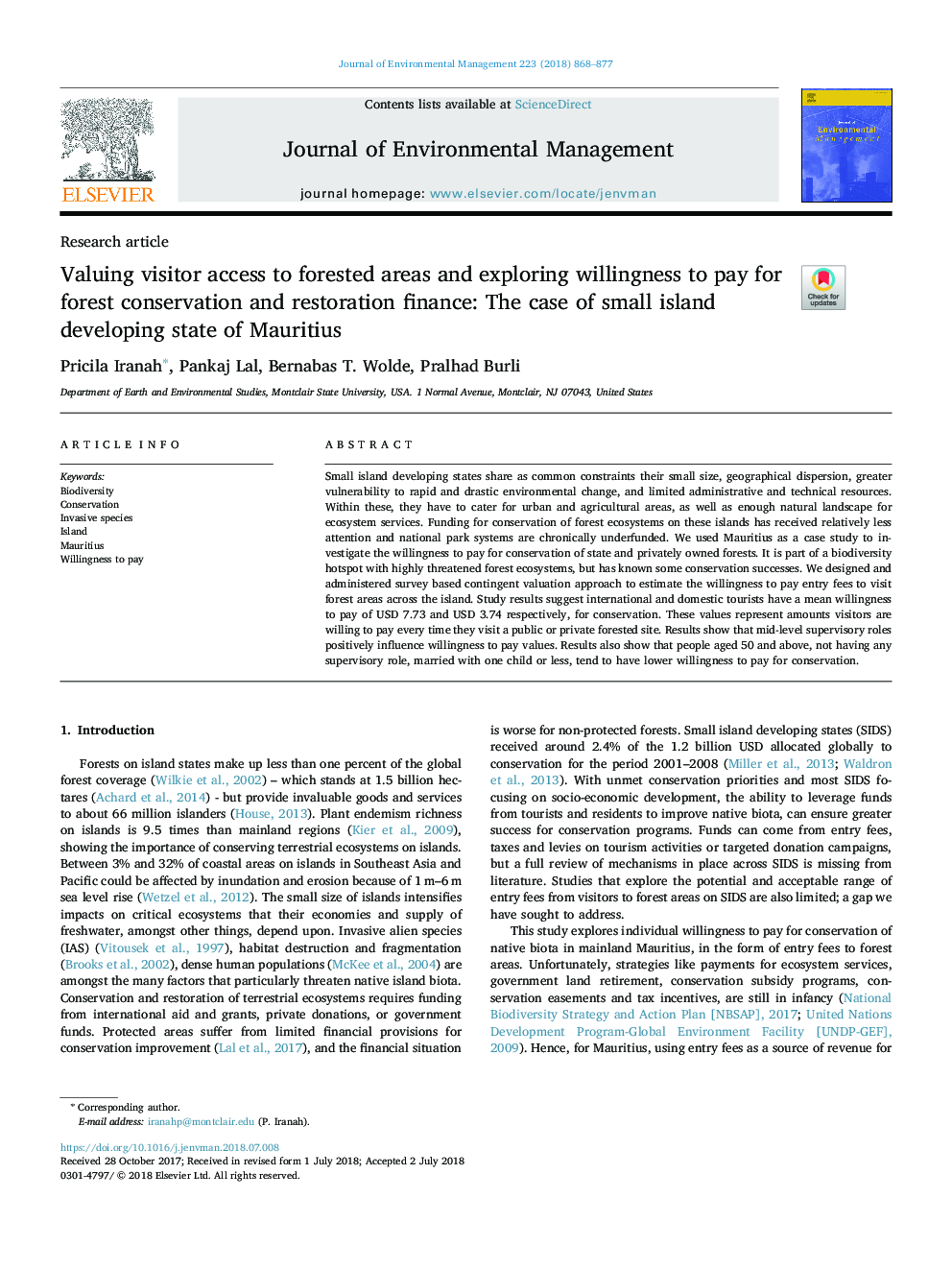| Article ID | Journal | Published Year | Pages | File Type |
|---|---|---|---|---|
| 7476264 | Journal of Environmental Management | 2018 | 10 Pages |
Abstract
Small island developing states share as common constraints their small size, geographical dispersion, greater vulnerability to rapid and drastic environmental change, and limited administrative and technical resources. Within these, they have to cater for urban and agricultural areas, as well as enough natural landscape for ecosystem services. Funding for conservation of forest ecosystems on these islands has received relatively less attention and national park systems are chronically underfunded. We used Mauritius as a case study to investigate the willingness to pay for conservation of state and privately owned forests. It is part of a biodiversity hotspot with highly threatened forest ecosystems, but has known some conservation successes. We designed and administered survey based contingent valuation approach to estimate the willingness to pay entry fees to visit forest areas across the island. Study results suggest international and domestic tourists have a mean willingness to pay of USD 7.73 and USD 3.74 respectively, for conservation. These values represent amounts visitors are willing to pay every time they visit a public or private forested site. Results show that mid-level supervisory roles positively influence willingness to pay values. Results also show that people aged 50 and above, not having any supervisory role, married with one child or less, tend to have lower willingness to pay for conservation.
Related Topics
Physical Sciences and Engineering
Energy
Renewable Energy, Sustainability and the Environment
Authors
Pricila Iranah, Pankaj Lal, Bernabas T. Wolde, Pralhad Burli,
